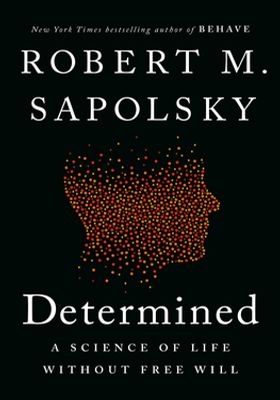
Determined: A Science of Life without Free Will
Robert M. Sapolsky
12 Key ideas
35 MINS
4.8 (503)
Psychology Science
Are you intrigued by the complexities of human behavior and the concept of free will?
Have you ever wondered how much control we truly have over our actions and decisions?
Are you ready to dive into a captivating exploration of neuroscience, chaos theory, emergent complexity, and quantum indeterminacy?
Are you intrigued by the complexities of human behavior and the concept of free will?
Have you ever wondered how much control we truly have over our actions and decisions?
Are you ready to dive into a captivating exploration of neuroscience, chaos theory, emergent complexity, and quantum indeterminacy?


Are you intrigued by the complexities of human behavior and the concept of free will?
Have you ever wondered how much control we truly have over our actions and decisions?
Are you ready to dive into a captivating exploration of neuroscience, chaos theory, emergent complexity, and quantum indeterminacy?
Key Ideas
Read | Listen - Full summary
About Author
Robert M. Sapolsky is a prominent neuroscientist, biologist, and author. He is a professor at Stanford University, where he conducts research on stress, neuronal degeneration, and the biology of human behavior. Sapolsky is well-known for his accessible writing on complex scientific topics, and his book "Determined: A Science of Life without Free Will" explores the implications of neuroscience and biology on the concept of free will. His work often bridges the gap between scientific research and public understanding, making intricate subjects relatable and comprehensible.
Learn Key Ideas from 9000+
non-fiction books in 15min.



